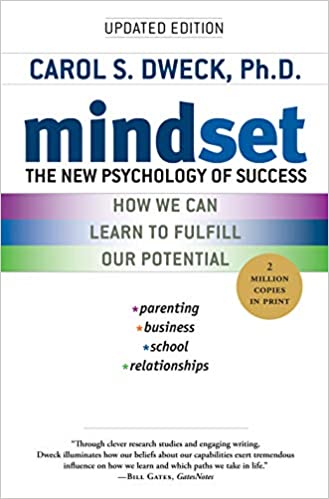I dislike the whole concept of “talent”. It assumes that some people have it and others do not. I believe that everyone is different and, for some people, “talent” may be buried or unseen for years or decades. Skill, on the other hand, is something that is always available for improvement. It is easy to see where you stand in terms of specific skills. On the other hand, the amount of “talent”, or even “potential talent” you have is difficult to determine precisely.

The fixed vs. growth mindset
Let’s start by saying that I am a firm believer in the growth mindset. Psychologist Carol Dweck wrote a book that said individuals can possess either a fixed mindset or a growth mindset. Those with a fixed mindset believe that abilities are inherent, fixed traits that cannot be significantly developed. On the other hand, individuals with a growth mindset understand skills and abilities can be cultivated. You can grow your abilities through dedication, effort, and learning.
This mindset dichotomy has far-reaching implications for the perception of talent. Some argue that talent is an innate, predetermined quality that sets individuals apart. The concept of a growth mindset challenges this notion. By emphasizing the importance of continuous learning, practice, and resilience you can develop your skills to their full potential. By accepting a growth mindset, individuals can tap into their capacity for growth. This can unlock your true potential, blurring the lines between talent and skill.
The Skill Stack:
In the ongoing debate between skill and talent, one concept that challenges the conventional understanding is the “skill stack.” This is a term coined by the renowned cartoonist and author Scott Adams. The skill stack refers to the combination of various skills that an individual possesses. Rather than focusing solely on innate talent or singular expertise, the skill stack emphasizes the value of acquiring a diverse range of skills and leveraging them in unique ways.
According to Adams, the skill stack is like building a personal inventory of abilities that, when combined, create a unique advantage in the professional world. By developing a collection of skills, even if they are not individually exceptional, individuals can create a distinctive skill set that sets them apart from others. It’s a concept that challenges the notion that talent alone determines success and highlights the power of deliberate skill acquisition.
The skill stack approach opens up opportunities for individuals who may not possess a specific talent but are willing to invest time and effort into developing multiple complementary skills. Rather than relying on a single outstanding ability, individuals can tap into the potential of their skill stack, combining their strengths to tackle complex problems and adapt to changing environments. This perspective challenges the traditional belief that success is predetermined by talent, suggesting that the path to success lies in intentionally cultivating and combining a broad range of skills.
By embracing the skill stack mindset, individuals can actively pursue learning and acquiring new skills, constantly expanding their repertoire. This approach allows for continuous growth and adaptability, enabling individuals to navigate diverse challenges and seize opportunities in an ever-changing world. The skill stack concept shifts the focus from fixed abilities to the development of a versatile skill set, ultimately empowering individuals to create their own unique paths to success.
Talent is just the most visible part of your skill stack. It’s what is on top of the stack. It does not mean that you don’t have other, perhaps even more impressive, “talents” or undeveloped skills. It is just visible… now.
Talent is what you make of it
How old was Michael Jordan when he first dunked in a game? (see the video below) What if he never practiced after the first time? Would he have made it to the NBA? Would he win 6 NBA championships? Probably not.
You may see a glimpse of your talent early in your life. However, if it is not developed through hard work, learning your craft and attention to details, you will never achieve your highest potential.
In summary, the skill stack mentality challenges the myth of talent. By highlighting the acquisition and combination of diverse skills, you will be able to achieve your highest potential. Success is not solely determined by the abilities you were born with but rather by the deliberate cultivation of a varied skill set. By embracing the skill stack mentality approach, you can unlock your full potential, adapt to new circumstances, and carve out your own path to success in a dynamic and competitive world.
